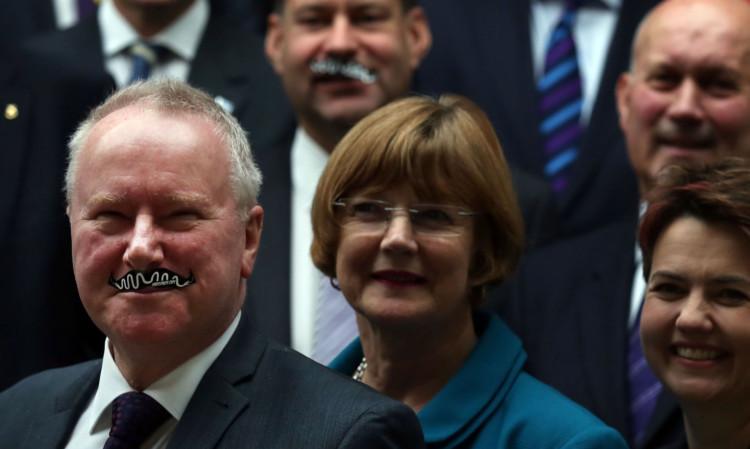
Health Secretary Alex Neil has been branded “ridiculous” after claiming a No vote in the referendum will result in Holyrood losing powers to Westminster.
The Cabinet Secretary said the Scottish Parliament “will almost certainly lose powers” if voters don’t back independence, even though he and his SNP colleagues voted for the Scotland Bill which will see Holyrood handed control over income tax, speed limits, and airguns and stamp duty from April, 2015 six months after the referendum.
The left-leaning Health Secretary also claimed a No vote will lead to “massive cuts in benefits” and a £4 billion a year cut in the Scottish grant, a claim rejected by Coalition ministers.
Writing in his local paper, the MSP for Airdrie and Shotts said: “Don’t be kidded on that a No vote will lead to greater powers for the Scottish Parliament. It won’t. If anything, the parliament will almost certainly lose powers.
“If the Scottish lion doesn’t roar with a resounding Yes vote we will be treated like sheep.”
After outlining his disputed claims about the negative consequences of a No vote, Mr Neil added: “Don’t believe the scare stories being put about by the so-called Better Together campaign”.
He continued: “Either we vote to free ourselves from London rule or we will remain bogged down with more cuts, poverty, deprivation and the continued pillage of our resources to help fund the boom in London and the south-east of England.”
In the biggest shake-up of devolution since its introduction, the Scotland Act will see Holyrood get major new financial powers worth £12 billion, allowing it to control a third of its budget.
Under the legislation, Holyrood will set a Scottish income tax rate each year from 2015, applying equally to the basic, higher and additional rates.
At the same time, there would be a reduction of 35% in the Scottish budget Treasury grant, worth about £30bn a year.
The Bill will also see the introduction of Scottish Government borrowing powers for the first time, worth £2.7bn
As well as the changes being brought in with the Scotland Act, all of the Unionist parties are reviewing their positions on devolution with a push for more powers likely to be unveiled in March.
Drew Smith, Labour’s constitutional spokesman said: “It is both desperate and ridiculous for a senior government minister to make these claims when he knows full well the opposite is the case.”

Enjoy the convenience of having The Sunday Post delivered as a digital ePaper straight to your smartphone, tablet or computer.
Subscribe for only £5.49 a month and enjoy all the benefits of the printed paper as a digital replica.
Subscribe